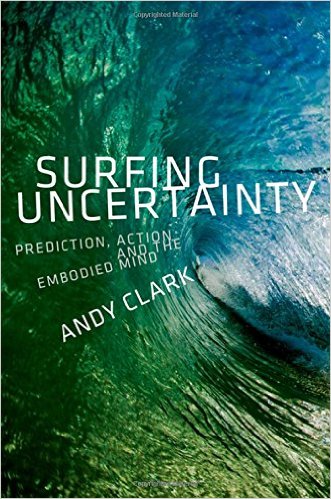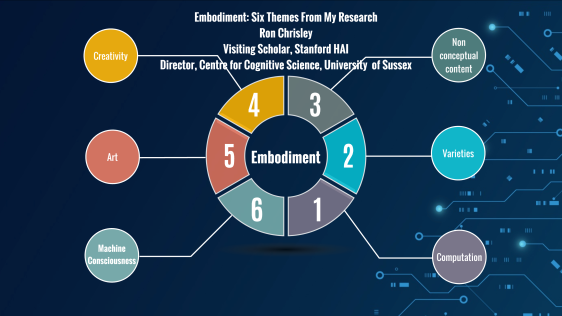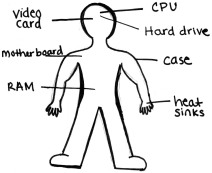The CogPhi reading group resumes next week. CogPhi offers the chance to read through and discuss recent literature in the Philosophy of Artifical Intelligence and Cognitive Science. Each week a different member of the group leads the others through the chosen reading for that week. This term we’ll be working through Andy Clark’s new book on predictive processing, Surfing Uncertainty: Prediction, Action and the Embodied Mind.
Science. Each week a different member of the group leads the others through the chosen reading for that week. This term we’ll be working through Andy Clark’s new book on predictive processing, Surfing Uncertainty: Prediction, Action and the Embodied Mind.
CogPhi meets fortnightly, sharing the same time slot and room as E-Intentionality, which meets fortnightly in the alternate weeks. Although CogPhi announcements will be made on the E-Int mailing list, attendance at one seminar series is not required for attendance at the other. CogPhi announcements will also be made here.
Next week, October 20th, from 13:00-13:50 in Freeman G31, Jonny Lee will lead the discussion of the Introduction (“Guessing Games”) and Chapter 1 (“Prediction Machines”). Have your comments and questions ready beforehand. In fact, feel free to post them in advance, here, as comments on this post.
EDIT: Jonny sent out the following message yesterday, the 19th:
It’s been brought to my attention that covering both the introduction and chapter 1 might be too much material for one meeting. As such, let’s say we’ll just stick to the introduction. If you’ve already read chapter 1, apologies, but you’ll be ahead of the game. On the other hand, if the amount of reading was putting you off, you’ve now only got 10 pages to get through!


 Science. Each week a different member of the group leads the others through the chosen reading for that week. This term we’ll be working through Andy Clark’s new book on predictive processing, Surfing Uncertainty: Prediction, Action and the Embodied Mind.
Science. Each week a different member of the group leads the others through the chosen reading for that week. This term we’ll be working through Andy Clark’s new book on predictive processing, Surfing Uncertainty: Prediction, Action and the Embodied Mind.